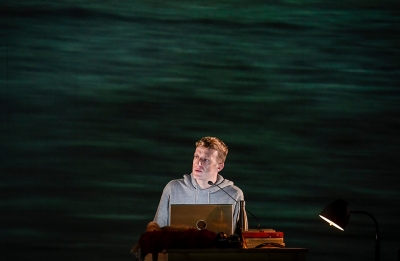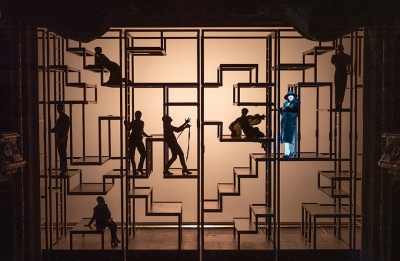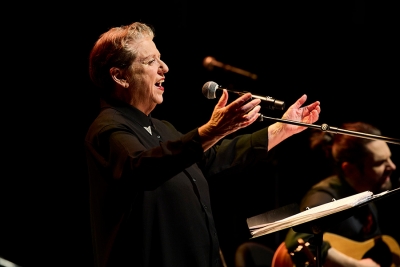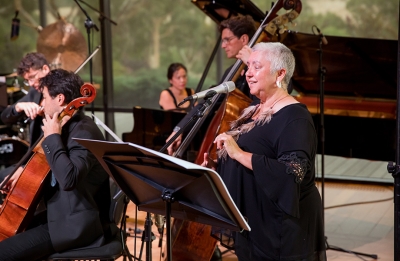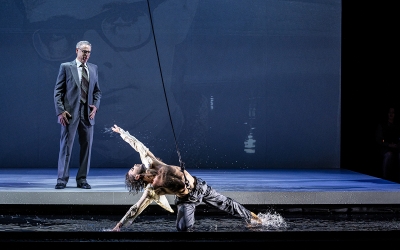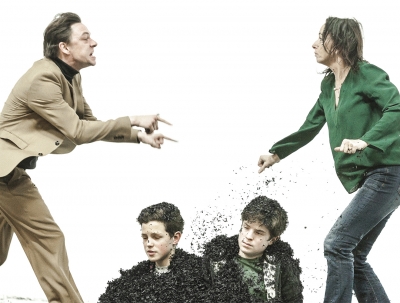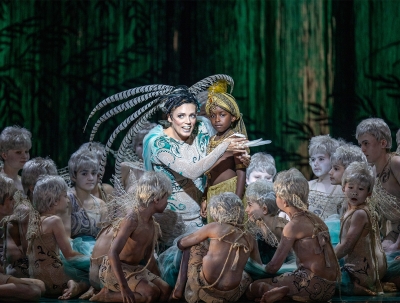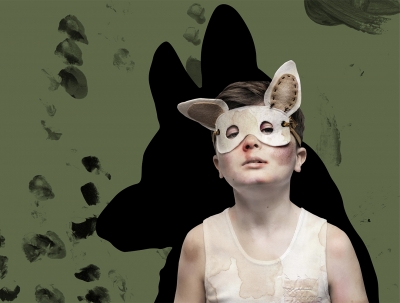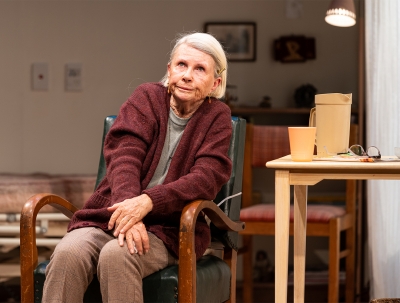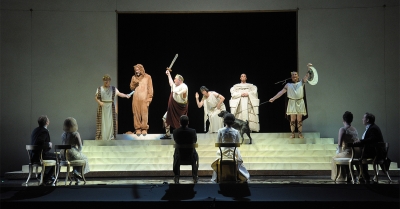Adelaide Festival
Qui a tué mon père (Who killed my father)
For the past decade, French writer Édouard Louis has been excavating and recuperating a childhood spent in a state of acute precarity in the Hauts-de-France. He has written both critically and empathetically about the lives of his parents and siblings, while also casting a probing eye on himself. His first novel, the autofictional En finir avec Eddy Bellegueule (The End of Eddy, trans. Michael Lucey, 2014), was published when he was only twenty-two and has enjoyed significant success in translation.
... (read more)The enduring popularity of The Threepenny Opera is often attributed to Kurt Weill’s music rather than Bertolt Brecht’s text. As director Barrie Kosky notes with characteristic hyperbole in the Adelaide Festival program for his new production with the Berliner Ensemble: ‘Weill … is as important for the history of music theatre as Wagner.’
... (read more)How might Australian history be characterised in song? Described as 150 years of alternative Australian voices, Robyn Archer’s An Australian Songbook is a very personal song selection that convincingly shows how song is the lifeblood of a healthy society, and a mirror to it.
... (read more)Neil Armfield’s production of Watershed – a new oratorio by composer Joe Twist and co-librettists Alana Valentine and Christos Tsolkias about the murder of Ian Duncan by police in Adelaide in 1972 and the subsequent cover-up and campaign for homosexual legal reform – is an angry, brave, beautiful, emotionally shattering, and unexpectedly uplifting work.
... (read more)In her essay on Akon Guode, the thirty-five-year-old South Sudanese refugee who drowned three of her seven children in April 2015, Helen Garner recalls striking up a conversation with a VCE student about Euripides’ Medea. Garner tells the student, ‘She did a terrible, terrible thing. But she was very badly treated. She was betrayed.’ Before she can go on, the student interrupts her, flushing and leaning forward in her seat. ‘But she was – a mother.’ Garner writes of feeling troubled ‘by the finality of the word “mother”, this great thundering archetype with the power to stop the intellect in its tracks.’
... (read more)Comparisons can be odious, odorous, even otiose. Yet while I have lost count of the number of takes on Shakespeare’s play I have seen over the years – theatre, ballet, modern dance, knockabout collages of dance, movement and music, and opera – five stay in the memory. In the order in which I saw them, they are: the first revival at Sadler’s Wells in the mid-1960s of Britten’s 1960 opera, which marked the beginning of James Bowman’s stellar career; Max Reinhardt’s 1935 film; Peter Brook’s version of the play, which redefined it for not just one but several generations; Elijah Moshinsky’s powerfully evocative take on the opera from 1978 (also starring Bowman); and Declan Donnellan’s inspired and laugh-out-loud shaking up of the work for the Donmar Warehouse in the mid-1980s.
... (read more)There is, somewhat surprisingly, a German connection in the otherwise resoundingly Irish The Boy Who Talked to Dogs, the State Theatre Company of South Australia and Slingsby Theatre Company co-production based on Martin McKenna’s memoir about his hardscrabble childhood in 1970s Garryowen. In both the book and the play, adapted by Irish playwright Amy Conroy, we encounter Martin (Bryan Burroughs) as a deeply troubled youth – the ‘smallest, weakest, and scaredest’ of a set of triplets – growing up with German emigrant parents.
... (read more)Who in their right mind would want to be running an international arts festival right now? Two months ago I was slated to review four Adelaide Festival shows for this publication. Due to Covid-19 travel restrictions, two were subsequently cancelled, including Anna Breckon and Nat Randall’s highly anticipated Set Piece. Co-artistic directors Neil Armfield and Rachel Healy must have been harried during the lead-up to the opening weekend, as national borders continued to snap open and shut like the jaws of a capricious crocodile.
... (read more)January 5
We have lost our Hermia, so Sally-Anne Russell comes round to sing for me. She has fished out Benjamin Britten’s Charm of Lullabies and her score of The Rape of Lucretia. We work on both, but particularly on the aria in which poor Lucretia threads together gorgeous lilies into a funeral wreath, her response to what the boastful, ghastly Tarquinius has done to her. Sally-Anne has not sung the opera for twenty-five years, but it sounds as though she’s fresh from recording it, so inside the role is she, so beautiful and rich her voice. I phone Neil Armfield. We have found our Hermia.
... (read more)
